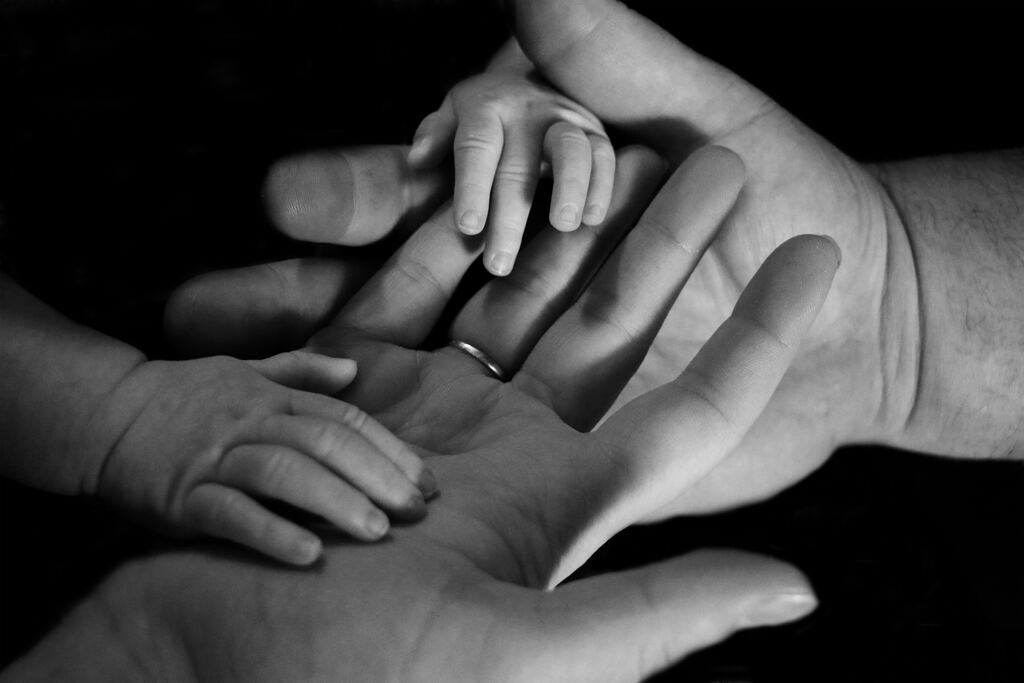Relational Trauma Treatment Center in Atlanta, GA
Relational trauma results from unhealthy relationships with someone close to you, such as a caregiver or romantic partner. This trauma affects many people throughout the United States. When the people who are supposed to care for an individual are instead the ones inflicting pain on them, this can leave lasting emotional scars. Our relational trauma treatment center in Atlanta, GA, is here to help you heal from these scars and move forward from past trauma.
Over two-thirds of children reported at least 1 traumatic event by age 16. Over 50% of women will be exposed to at least one traumatic event in their lifetime, typically interpersonal trauma such as domestic violence or sexual assault.
In this article
Dual Diagnosis Treatment Centers in Georgia (Metro Atlanta)
- Suicidal Ideation Treatment
- Obsessive Compulsive Personality Disorder Treatment
- Avoidant Personality Disorder Treatment
- Histrionic Personality Disorder Treatment
- Dependent Personality Disorder Treatment
- Acute Stress Disorder Treatment
- Relational Trauma Treatment
- Narcissistic Personality Disorder Treatment
- Attention Deficit Hyperactivity Disorder Treatment
- Sex Addiction Treatment
- Anxiety Treatment
- Depression Treatment
- Bipolar Disorder Treatment
- Post Traumatic Stress Disorder Treatment
- Borderline Personality Disorder Treatment
- Obsessive Compulsive Disorder Treatment
- Panic Disorder Treatment
A Deep Look into Relational Trauma
Relational trauma is a complex trauma that often occurs when unhealed childhood wounds carry themselves into adulthood. A single event does not cause relational trauma but rather a series of repeated abuse by someone close to you. It is also referred to as relationship trauma or relationship post-traumatic stress disorder.
The term “relational trauma” typically refers to the ongoing effects that result from:
- Abuse: repeated exposure to harmful experiences that could be physical, sexual, or emotional
- Neglect: trauma due to things that didn’t occur, such as physical or emotional abandonment
- Enmeshment: a lack of boundaries between family members, which can impair a child’s independence and sense of self
The role of primary caregiver is vital to adolescent development. When loved ones in this position don’t provide children with a healthy relationship, the result can be relational trauma that follows the individual into adulthood and affects many aspects of their life.

Causes of Relational Trauma
This form of trauma is typically caused by experiencing a disrupted relationship during childhood. This can manifest as childhood neglect and physical, sexual, or emotional abuse. In some cases, relational trauma is linked to the emergence of post-traumatic stress disorder (PTSD).
Many instances of traumatic familial experiences can result in relational trauma. These examples include:
- Physical or emotional neglect of a child
- Chaotic environments where caregivers are always fighting
- Parents struggling with substance abuse
- A divorce or death of a parent or caregiver
- Relying on a child to fulfill emotional needs which makes them responsible for the caregiver’s well-being
Reasons why a parent might struggle to provide emotional support to their child can include:
- Personal mental health disorders
- Substance use and addiction issues
- Demanding work schedule
- Domestic violence in the home
- Prioritizing care for other family members
- Feeling overwhelmed by a child’s needs
The child may understand and even be sympathetic toward these issues. Yet, this lack of emotional support can still cause the child to suffer during adolescence and develop relationship trauma.
Signs and Symptoms of Relational Trauma
The effects of relationship trauma can appear in various behaviors and thought processes. These will typically manifest once the person has reached adulthood despite experiencing childhood trauma.
Due to relationship trauma, you may experience:
- Headaches
- Insomnia
- Fatigue
- Digestive issues
- Chronic pain
- Self-esteem issues
- Deep mistrust of others
- Anger and rage
- Depression
- Difficulty setting or maintaining boundaries
- Difficulty maintaining healthy adult relationships
- Social anxiety or generalized anxiety disorder
- Avoidant behavior
- Increased dependence on others
- Neediness or manipulation in relationships
- Developmental delays and cognitive difficulties
This trauma can result in other mental health difficulties if left untreated. Individuals with relationship trauma may develop other mental illnesses like depression, PTSD, eating disorders, or personality disorders like borderline personality disorder (BPD). Individuals are also at increased risk of self-harm, substance use, and suicidal ideation.

Types of Relational Trauma
Relational trauma falls into two categories: childhood and adult.
Childhood trauma stems from mistreatment by parents or caregivers. This includes abuse, neglect, or abandonment. It leads to insecurity, distrust, and difficulties in adult relationships.
Later life experiences can also cause this trauma to develop in adults. Abuse, neglect, or abandonment by loved ones, partners, family, friends, or others lays the groundwork. Relational trauma impacts social life, twists self-image, and inhibits emotional control.
The Importance of Relational Trauma Recovery
Without the intervention of mental health professionals, this trauma will continue to affect different aspects of your adult life. Relational trauma can cause you to take responsibility for the emotional well-being of others, become hyper-vigilant in watching other’s moods, and develop extreme attention to self-sufficiency.
You may also feel an intense fear of abandonment or failure and face an inability to build healthy relationships because you are worried that your loved ones will disappoint you or expect too much from you. These issues worsen without treatment, and you may isolate yourself to avoid pain or use substances to cope.
Trauma therapy can guide you to overcome these issues and heal from past experiences. Undergoing treatment will help you regain a sense of self and discover a more positive outlook on life, free from the trauma that has scarred you since childhood.
Why Choosing The Summit Wellness Group Can Help
Our recovery center is more than state-of-the-art facilities. We’re a place where skilled clinicians raise the bar in effective recovery. We’re the South’s solution to the lack of solid programs for mental health disorders like relational trauma.
Our facility is Joint Commission accredited, which means we adhere to the highest safety and quality standards for our clients. Our clinical team holds various licenses and credentials. Our track record of success and shining 5-star Google Reviews speak for themselves.
Without treatment, relational trauma can destroy your sense of self and affect how you maintain adult relationships. Our commitment is uniting you with yourself again.
Our Relational Trauma Treatment Programs
Our mental health partial hospitalization program (PHP) is a step from an inpatient or residential treatment center. PHP is our 30-hour-a-week program. You come to our center in the daytime and go home at night. You ease into applying what you learn to your daily life. This program instills the skills not to let relational trauma control your life. It dives deeper into mental illness and substance abuse if needed.
Trauma-Focused Treatment for Mental Health Issues
Medication-Assisted Treatment (MAT)
Medication-assisted treatment (MAT) can help patients manage depression or co-occurring substance abuse disorders to lessen symptoms of mental illness or withdrawal. Our healthcare providers safely administer these medications during treatment.
- Antidepressants are used to control the nerves that send messages throughout the body. They also regulate serotonin, which stabilizes mood; antidepressants reduce feelings of anxiety and prevent panic attacks.
- Beta-blockers are used to block the effects of adrenaline. They do this by controlling the symptoms of panic attacks, such as rapid heart rate and shaking.
- Vivitrol, Disulfiram, Naltrexone, and Methadone help patients through withdrawal from alcohol or opiate addiction. These medications alleviate withdrawal symptoms and reduce cravings, giving patients a clear head during treatment.
Evidence-Based Treatment
These therapy options provide patients with a personalized program combining various scientifically-backed evidence-based treatment methods.
- Cognitive-behavioral therapy (CBT) is the most commonly used therapy and efficiently treats mental health problems. CBT is intense talk therapy that involves changing the patient’s thinking and behavioral patterns, allowing them to develop coping skills and improve problematic thought patterns.
- Dialectical behavior therapy (DBT) is derived from CBT and is another form of talk therapy that allows patients to understand how their thoughts affect their emotions and behaviors. DBT helps patients accept the reality of their lives, regulate their feelings, and change self-destructive behaviors into more positive actions.
- Group therapy involves guided sessions with your therapist and peers. Your therapist will suggest topics and moderate group discussions, which allow each patient to discuss their emotional state and recovery progress in a safe environment.
- Eye movement desensitization and reprocessing (EMDR) is a psychotherapy technique that helps combat traumatic memories and allows patients to heal from their past. By resolving trauma-associated issues, patients can decrease their triggers, improve stress management and self-control, and let go of negative feelings associated with painful memories.
- Family therapy allows patients to address issues in the family dynamic that contributed to relationship trauma, work to repair those bonds, and find support from their loved ones. This helps patients heal from the past and create healthier family relationships.
- Motivational enhancement therapy is a tool therapists use to help clients overcome their disdain for seeking treatment. The main goal is to ensure that clients seek change independently rather than being forced into it by their family, friends, or therapist.
Holistic Therapy
This approach goes beyond drug addiction treatment and allows us to examine each patient’s mind, body, and psyche rather than just symptoms of addiction. Our holistic treatment uses mindfulness techniques like yoga, massage therapy, guided meditation, nutrition, chiropractic care, fitness programs, art therapy, and adventure activities to help patients discover hobbies that improve their mental health and find joy in life.
Heal from Childhood Trauma
Our treatment plans offer a way out of the relational trauma that has impacted your life and relationships. We use a combination of treatment methods to address all aspects of your mental health and well-being so you can create a better future free from the wounds of the past.
The Summit Wellness Group is here to guide you to recovery. Call us at (770) 824-3698 or fill out our contact form to connect with our team and determine which of our programs suits you.
We’re Here To Help
Get help now
We’d love the opportunity to help you during this overwhelming and difficult process. Our sincere passion is helping people recover so that they can live full, meaningful, and healthy lives.
Call us 24/7 at 770-299-1677. If we aren’t the right fit for you then we’ll utilize our expertise and connections within the treatment industry to assist you in finding the best provider for your specific needs. Alternatively, you can fill out our contact form and a member of our staff will contact you shortly.
